Masthead
Meet the editors, readers, and interns whose work—from discovering up-and-coming authors to assembling engaging new issues—makes MQR the vibrant journal it is today.
Editor-in-Chief: Khaled Mattawa
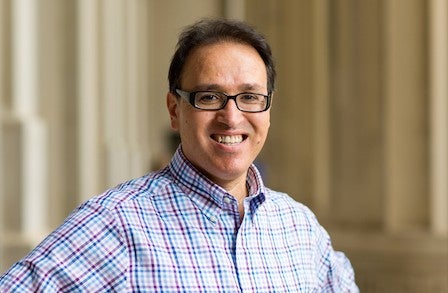
Khaled Mattawa is the author of four books of poetry, Tocqueville (New Issues Press, 2010), Amorisco (Ausable Press, 2008), Zodiac of Echoes (Ausable Press, 2003), and Ismailia Eclipse (Sheep Meadow Press, 1996). He is also the author of Mahmoud Darwish: The Poet’s Art and His Nation, a critical study of the great Palestinian poet Mahmoud Darwish, published by Syracuse University Press. He has translated nine books of contemporary Arabic poetry by Adonis, Saadi Youssef, Fadhil Al-Azzawi, Hatif Janabi, Maram Al-Massri, Joumana Haddad, Amjad Nasser, and Iman Mersal. Mattawa has co-edited two anthologies of Arab American literature. Mattawa has been awarded the Academy of American Poet’s Fellowship Prize, the PEN-American Center award for poetry translation, a Guggenheim fellowship, the Alfred Hodder fellowship from Princeton University, an NEA translation grant, and three Pushcart prizes. His poems have appeared in Poetry, The Kenyon Review, Antioch Review, Best American Poetry, and many other journals and anthologies. Mattawa was born in Benghazi, Libya and immigrated to the United States in his teens.
Poetry Editor: Carlina Duan
Carlina Duan is a writer-educator from Michigan, and the author of the poetry collections I Wore My Blackest Hair (Little A, 2017) and Alien Miss (University of Wisconsin Press, 2021). Her poems have appeared in POETRY Magazine, Narrative Magazine, Poets.org, and other publications. She has an M.F.A. from Vanderbilt University, and is currently a Ph.D. Candidate in the Joint Program in English and Education at the University of Michigan. Among many things, she loves river walks, snail mail, and being a sister.
On what kind of submissions she’s looking for: “I’ve always been drawn to poems that are deeply rooted in movement—poems that are courageous in their heart-matter, in their form, in their ability to expand both into and beyond the self, poems that journey somewhere with care and curiosity; poems that ask (sometimes unresolvable) questions. Elizabeth Alexander writes, “Many things are true at once,” and I remain curious about poetry as a space to explore multiplicity. I love poems that weave together, revel in, expand and subvert the known contours of human experience; poems that sing towards the textures of community, history, and place; poems that are attuned to the slants and strangenesses and physicality of language. As a reader, I hope to be surprised by—moved by—what the poem offers me.”

Fiction Editor: Polly Rosenwaike
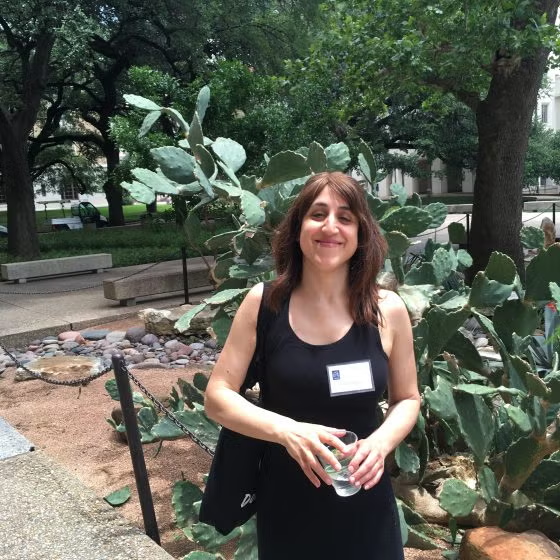
Polly Rosenwaike’s story collection, Look How Happy I’m Making You, was published by Doubleday in 2019. Her fiction has appeared in the O. Henry Prize Stories, Glimmer Train, New York Magazine’s The Cut, Colorado Review, New England Review, and other journals. Book reviews and essays have appeared in the New York Times Book Review, the San Francisco Chronicle, The Millions, Lit Hub, and Dame Magazine. She currently works as a freelance editor in Ann Arbor.
On what kind of submissions she’s looking for:“Literature contains more intimacy than life,” Lorrie Moore said. I’m looking for stories that draw the reader into an intimate relationship with a voice, a consciousness—that give us characters who feel particular and alive. I want to laugh, and cry, and marvel at how the writer has managed to capture truths big and small.
Nonfiction Editor: Chandrica Barua
Chandrica Barua is a PhD candidate in English Language and Literature at the University of Michigan, Ann Arbor, researching racial/racialized encounters amongst bodies and objects within the framework of transimperial coloniality studies. She was the 2022 recipient of the First Place Hopwood Award for Nonfiction, judged by Esmé Weijun Wang and Jenny Boully. Her written work has appeared or is forthcoming in Wasafiri, Feminist Review, Cahiers victoriens et édouardiens, Journal of Gender Studies, Journal of Eighteenth-Century Studies, South Asian Review, and with Zubaan, India and SPF, Japan. She is from Assam from where most of her writing gets life. Find her @chandrica_barua.
On what kind of submissions she’s looking for: “The pieces that I am drawn to the most, that linger long after they’ve been read, are the ones that are startling, surprising, and perhaps even a little bit unsettling. These are the pieces that are expansive, in that they open a world of possibilities of feeling and thought for the reader, and take unexpected and bold risks in terms of stylistic innovations and formal disruptions. As a reader, I seek out writing that travels across and strings together multiple threads, especially jarring juxtapositions and unlikely pairings, in pursuit of the heart of the story. I welcome multilingual and hybrid writing.“
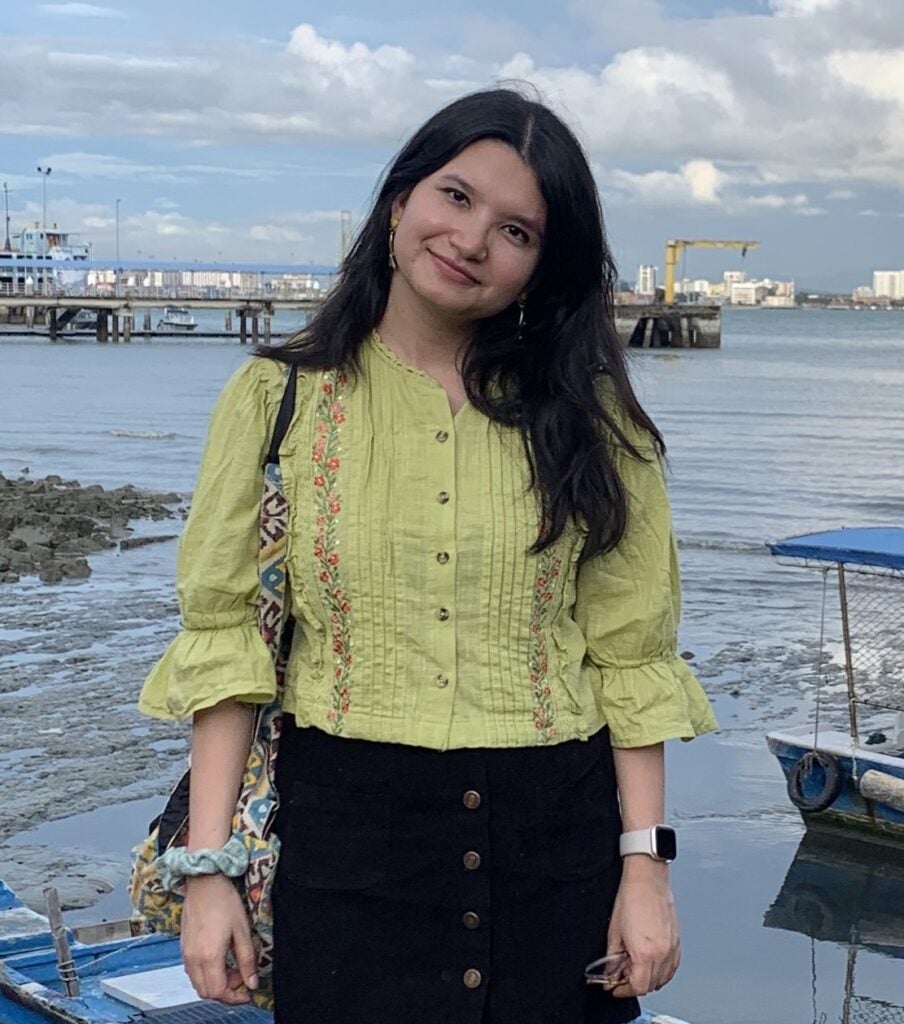
Managing Editor: Aaron J. Stone
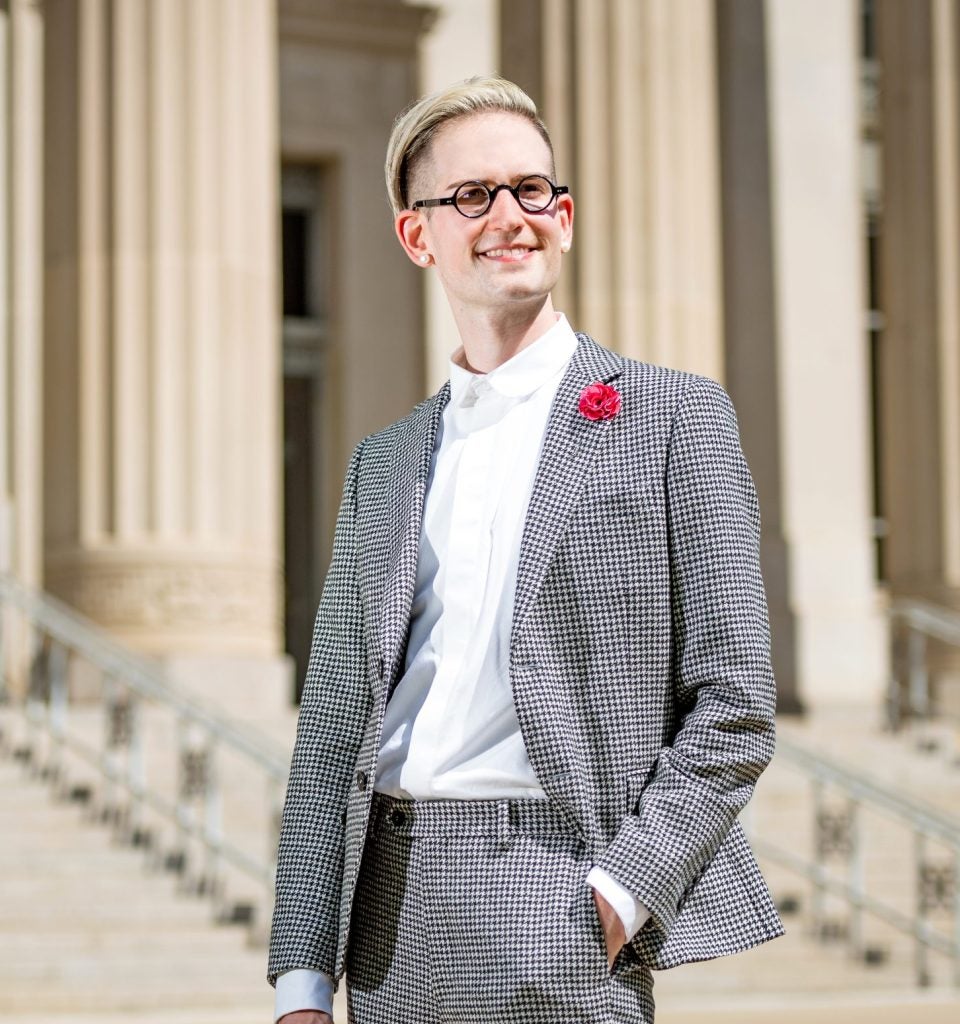
Aaron J. Stone (they/them) is Adjunct Professor of English and Women’s, Gender, and Sexuality Studies at Lafayette College. They hold a PhD in English Language and Literature with a Graduate Certificate in LGBTQ Studies from the University of Michigan. Aaron’s primary research interests span queer and trans studies, multiethnic American literature, modernist studies, and narrative theory. Their book project, Desires for Form, explores the social crisis of form that nascent queer communities faced in early twentieth-century America as queer people tried to imagine what shapes their lives might take. The project investigates how these subjects turned to narrative to work out their desires for form. Aaron has also written a chapter for the edited collection The Cultural Impact of RuPaul’s Drag Race: Why Are We All Gagging? (Intellect Books, 2021). Their work is published or forthcoming in GLQ and Modernism/modernity.
Assistant Managing Editor: monét cooper
monét cooper is a poet, teacher-educator, and doctoral candidate from the land of the Mvskoke (Georgia) studying in the University of Michigan’s Joint Program in English and Education. monét co-hosts Dancing on Desks, a podcast that celebrates justice-full, liberatory, and abolitionist education. She is an Imagining America PAGE Fellow, a recipient of the CCCC 2023 Gloria Anzaldúa Rhetorician Award, and the 2021 Hurston-Wright Foundation College Poetry Award. monét enjoys baking German chocolate cake, gazing at the night sky, porch sits, and naps. And, more than anything, she misses laughing with her grandma.
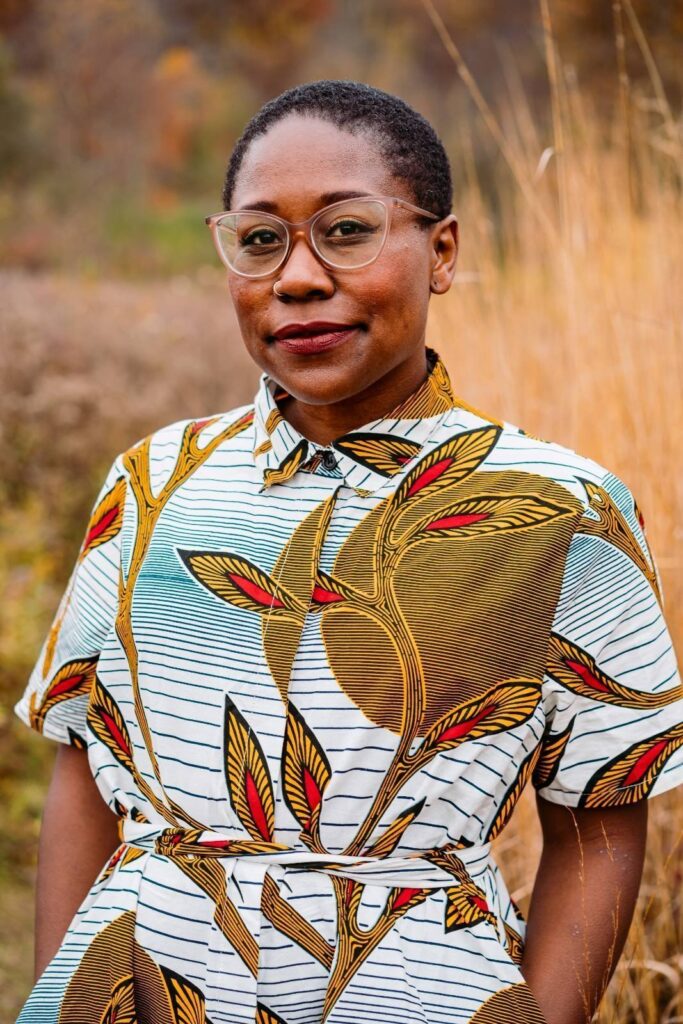
Contributing Editors

Elinam Agbo was born in Ghana and grew up in Kansas. She is a winner of the 2018 PEN/Dau Short Story Prize, two Hopwood Awards for Short Fiction and Nonfiction, and the Les River Fellowship for Young Novelists. Her work has received support from Aspen Words, the Clarion Foundation, and the Hurston/Wright Foundation, among others. A graduate of the 2019 Clarion UCSD Workshop, she holds a BA from the University of Chicago and an MFA from the Helen Zell Writers’ Program at the University of Michigan, where she co-founded MQR Mixtape, an online imprint of Michigan Quarterly Review. Her writing has appeared in The Bare Life Review, American Short Fiction, Nimrod, PEN America Best Debut Short Stories 2018, and elsewhere. She is currently the 2021-2023 Kenyon Review Fellow in Prose.
Urvi Kumbhat holds a BA from the University of Chicago and is currently an MFA candidate at the Helen Zell Writers’ Program. Her work appears in The Margins, Glass: A Journal of Poetry, Apogee, Protean Magazine, and other publications. She grew up in Calcutta. You can find her on Twitter and Instagram @curvi_k
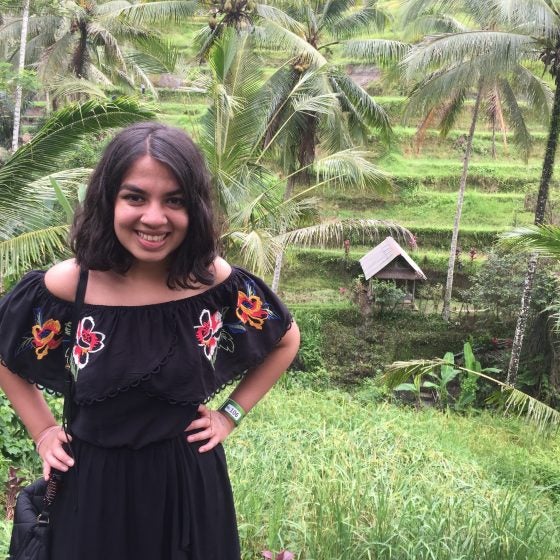

David Joez Villaverde is a postdisciplinary artist and CantoMundo Fellow. His work has appeared in Best New Poets, Black Warrior Review, THRUSH, The Rumpus, Dreginald, and Diode Poetry Journal among others. He can be found at schadenfreudeanslip.com
Assistant Editors
Sarah Anderson is from Philadelphia and holds a degree from Colgate University. She is an MFA candidate in fiction at the Helen Zell Writers’ Program. Previously, she lived in New York City and Lusaka, Zambia, where she worked in public health. In third grade, she had bangs and exclusively wore corduroy overalls before they were cool. When she’s not writing, she’s busy watching reality TV and feeling guilty about how she really should be writing right now.
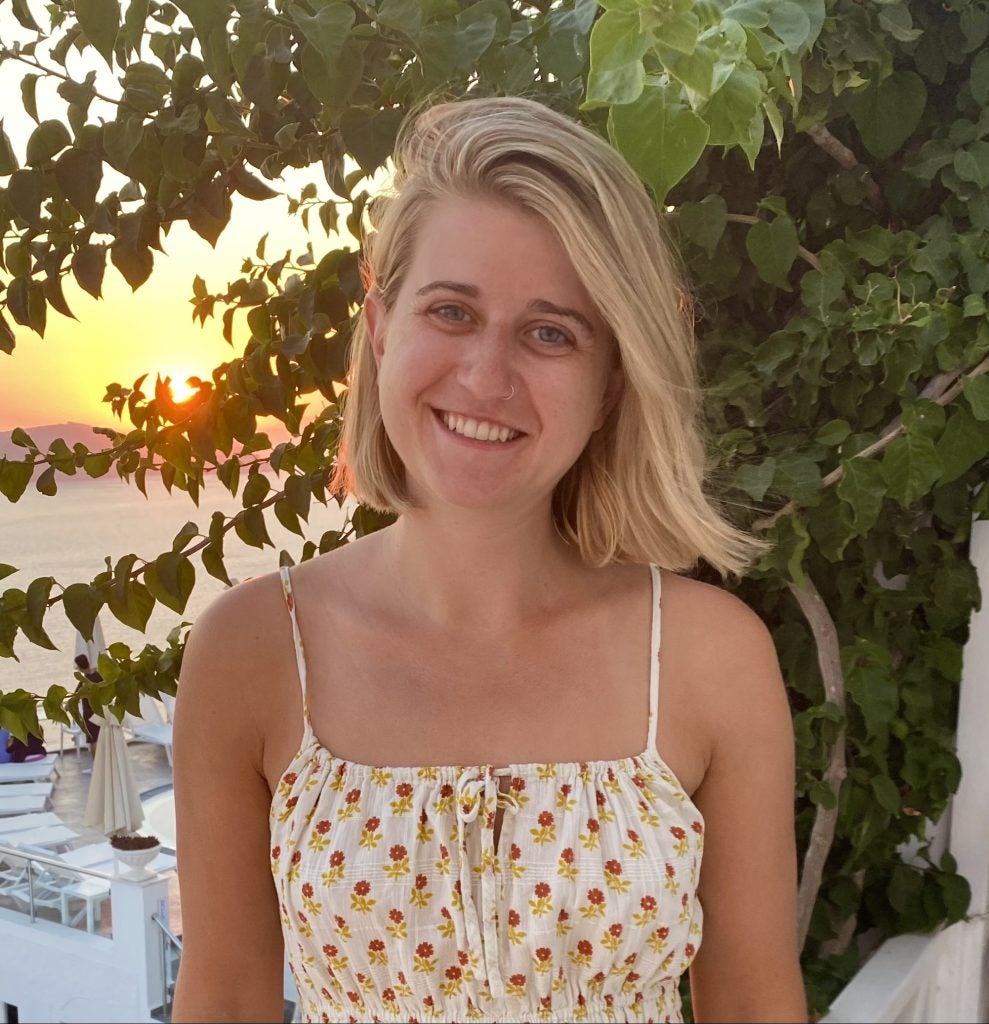

Diepreye is a Nigerian immigrant poet from Charlotte, North Carolina. She holds a BA in English and Comparative Literature from UNC-Chapel Hill, and is currently an MFA candidate in Poetry in the Helen Zell Writers’ Program. Her poems have appeared or are forthcoming in the Academy of American Poets (poets.org), Up the Staircase Quarterly, Rising Phoenix Press, and elsewhere. She is a 2022 Best New Poets nominee.
Courtney DuChene (she/her/hers) is a poet from Philadelphia. She is currently an MFA in poetry candidate at the university of Michigan and holds a BA in English and Media and Communications Studies from Ursinus College. Her poems draw on her experiences growing up in a farming family in northern Minnesota and are influenced heavily by eco and environmental poetry traditions. Prior to moving to Ann Arbor to pursue her MFA, DuChene was working as a journalist in Philadelphia where she covered business, sustainability, environmental issues and nonprofits. A 2021 Lillie Robertson Prize winner, her work appears in Philadelphia Stories, Paper Dragon, The Blue Route and elsewhere.
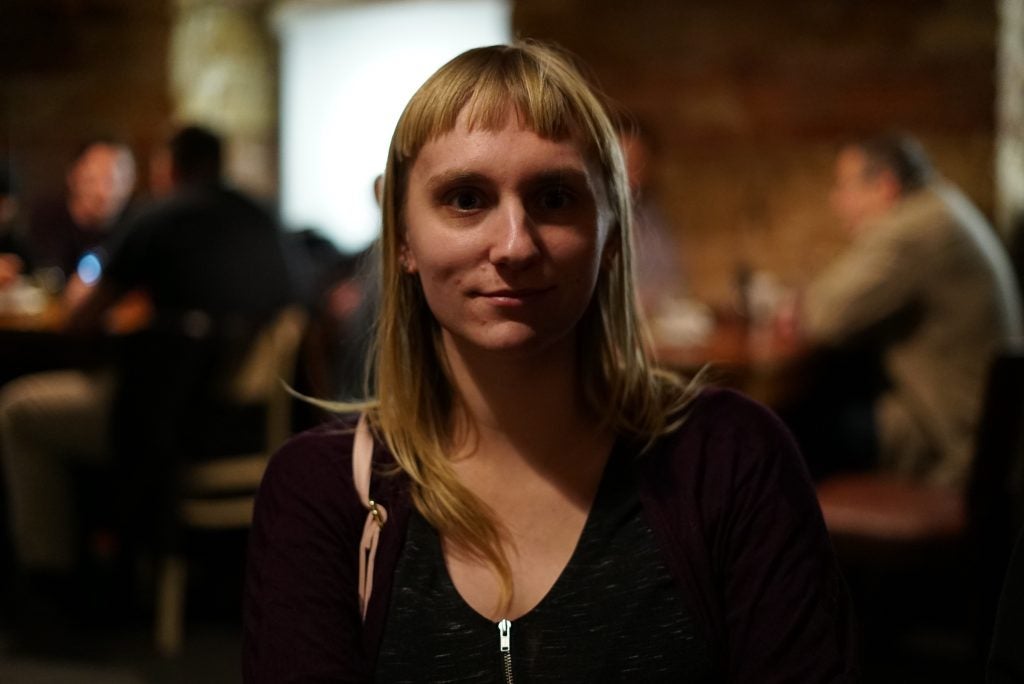
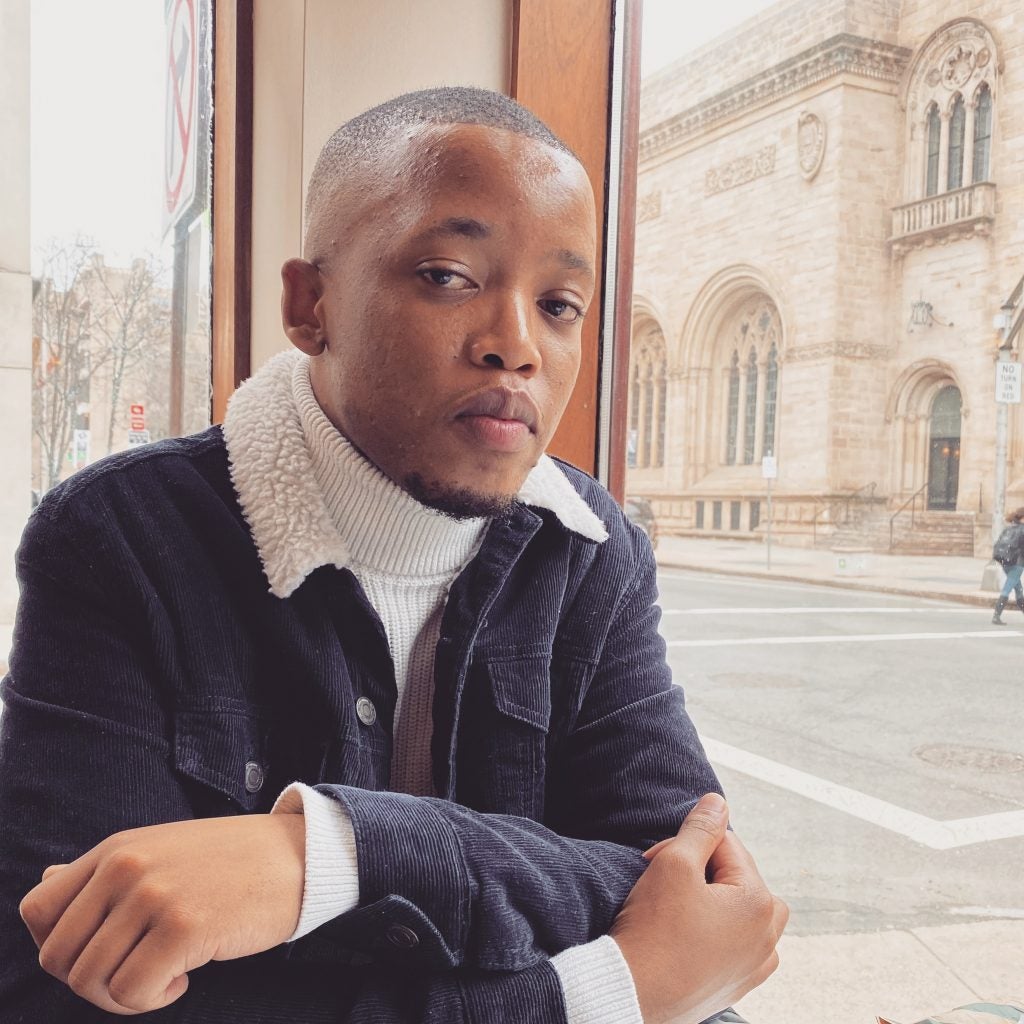
Kabelo Sandile Motsoeneng is a writer from Johannesburg, South Africa. He studied English and Human Rights Studies at Trinity College-Connecticut. An MFA in Fiction candidate, his short fiction appears in Joyland Magazine, Lolwe, Prairie Schooner, and others. Motsoeneng is currently at work on a novel.
Josh Olivier is a writer from Redlands, California. When he isn’t working on fiction, he’s busy writing twee anthems and heartbreak songs for his band, No Better. He really is trying his best.
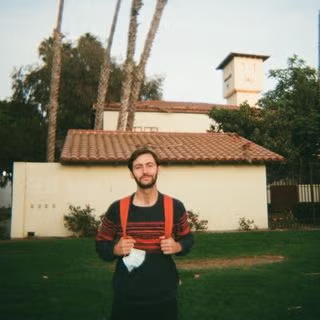

Michael O’Ryan holds a BA in Cinema Studies from the University of Oregon, where he served as a poetry editor for Unbound Journal. He is the author of the chapbook Post-Fondness (Finishing Line Press, 2020), and an MFA candidate in poetry at the Helen Zell Writers’ Program. Find him on Twitter @michaelxoryan.
A. Shaikh (they/he/she) is a queer immigrant poet raised in the heat of Texas. They are the 2021 winner of The Boiler Prize, MAYDAY Poetry prize, and an Aquarius who loves the color blue. They are currently pursuing their MFA in Poetry at the University of Michigan Helen Zell Writers’ Program. Before arriving in Ann Arbor, they were an associate and intern at the Kenyon Review. You can find their poems in Underblong, EX/POST and elsewhere. Their Twitter thoughts exist @apricotpoet. When not online, A. is daydreaming and/or giving their beautiful partner a kiss.

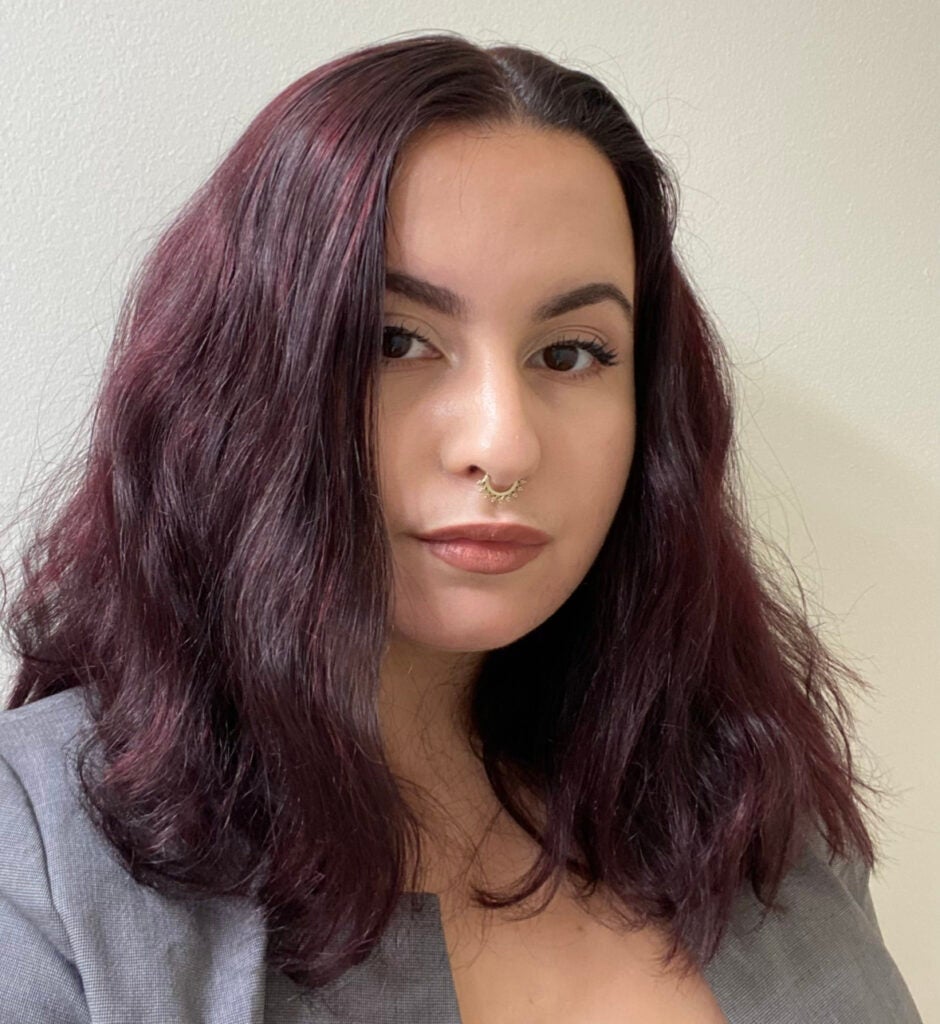
Sahara Sidi (she/her) is a poet and essayist. Her writing has been recognized by the National YoungArts Foundation, the Adroit Journal, Salt Hill Journal, and Columbia College Chicago. She holds a BA in English and a certificate in Social, Cultural, and Critical Theory from Wesleyan University. She is a recipient of the Wesleyan University Olin Fellowship, Sophie and Ann Reed Prize, Herbert Lee Connelly Prize, Cole Prize, and Winchester Fellowship. Currently, she is a 2nd-year Rackham Merit Fellow at the Helen Zell Writers Program.
Graduate Readers
Hank Hietala is an MFA candidate in fiction at the University of Michigan. His writings have appeared in Salt Hill Journal, Rain Taxi, and the Cleveland Review of Books. He grew up in Montana.
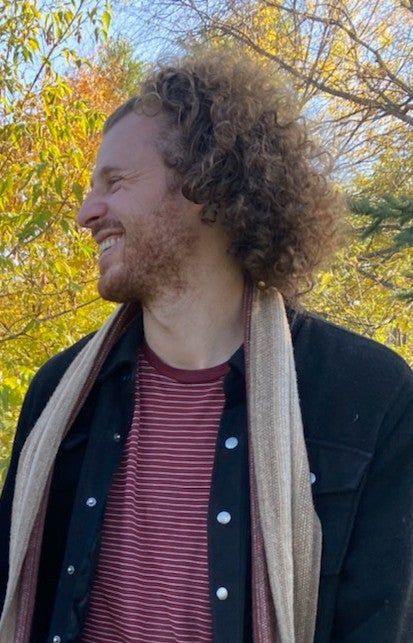

Ethan Hsi is a poet and critic from Cleveland, Ohio.
Malia Maxwell is a writer from Seattle, WA. She is an MFA candidate in Poetry at the Helen Zell Writers’ Program and holds a BAH in English Literature from Stanford University.

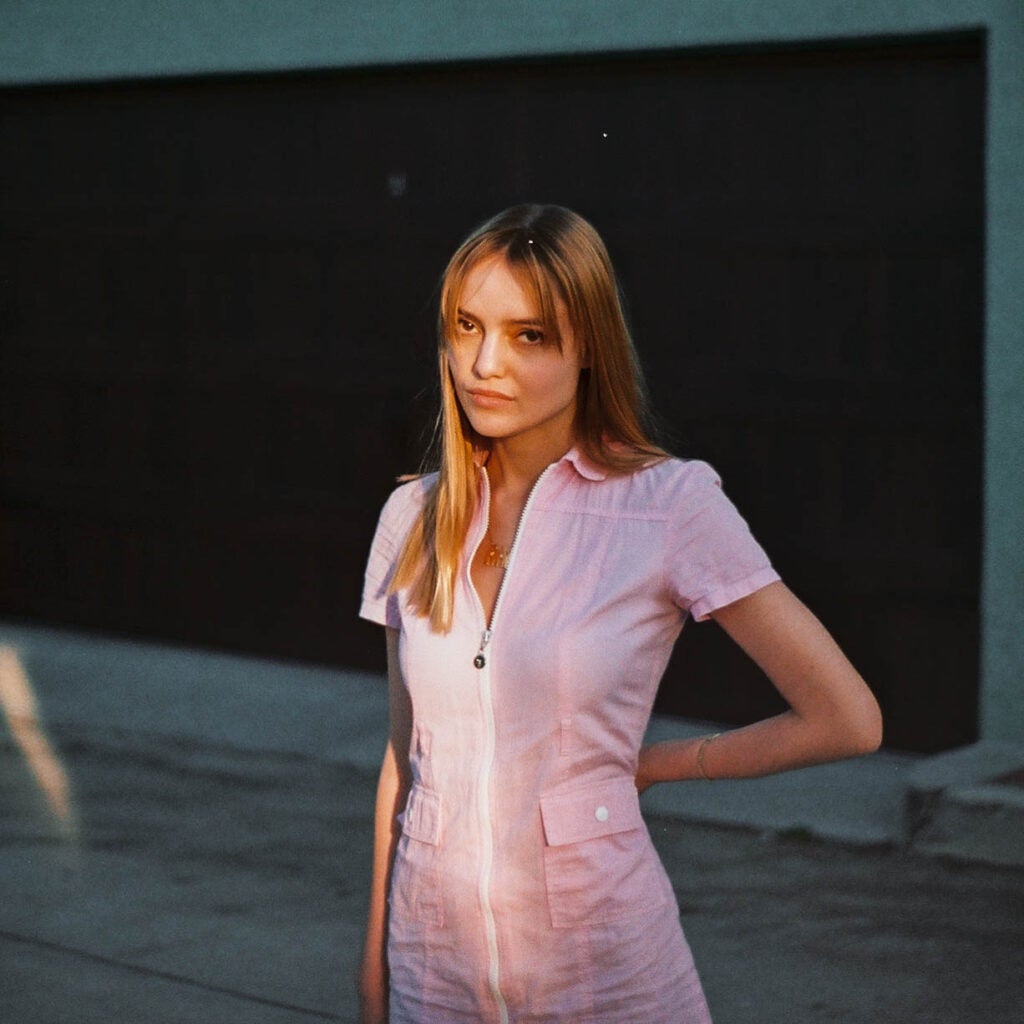
Molly Mittelbach is a writer from Los Angeles. She is an MFA candidate in fiction at the Helen Zell Writers’ Program.
Caroline Porter is a writer who was born in Georgia but feels most at home in North Carolina. After receiving her BA from the University of North Carolina—Chapel Hill, she worked the glamorous jobs of librarian, nanny, and waitress before packing her bags for Michigan. She is currently pursuing an MFA in Fiction at the Helen Zell Writers’ Program.

Social Media Coordinator
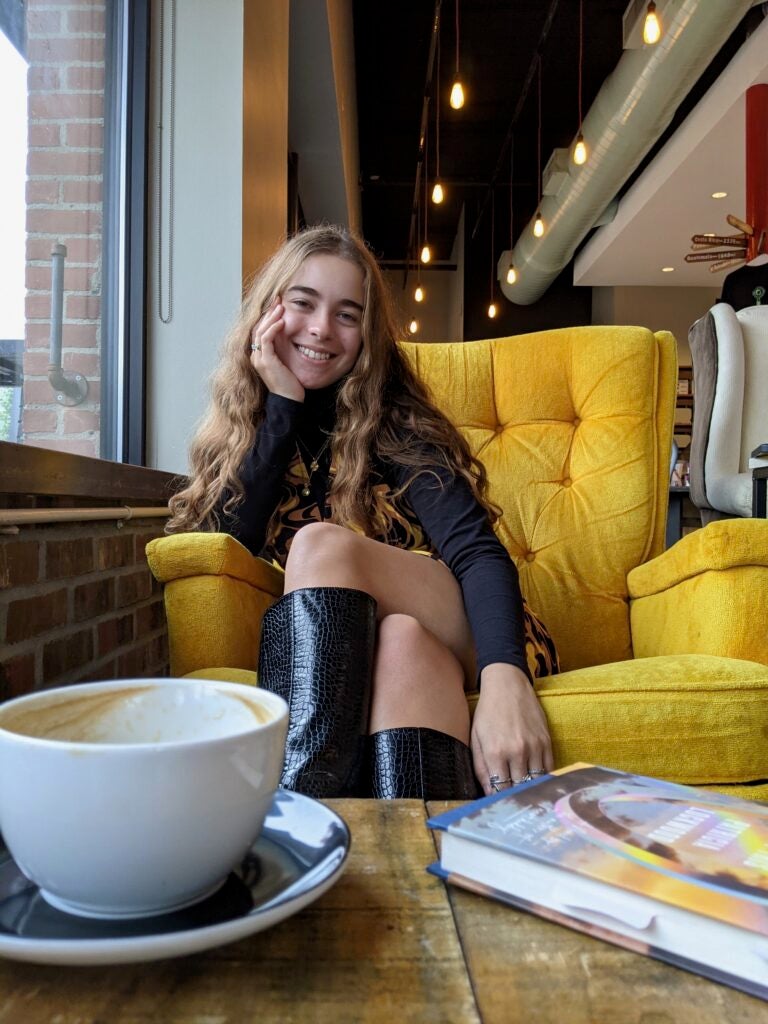
Melina Schaefer is a writer from Metro Detroit. She received a BA from the University of Michigan in 2023 where she studied English and Creative Writing. She has worked with SHEI Magazine since her freshman year and recently served as Editor-in-Chief. She is interested in the intersection between writing and art and enjoys creating mixed-media zines. She’s also passionate about making writing and art more accessible at a community level. In her free time, she loves experimenting with collaging and film photography.
Editorial Assistant
Steve Liu is a writer based in Ann Arbor. In 2023, he received a B.S. Degree in Environmental Studies and English from the University of Michigan. Recently, he’s been interested in the ways literature can be used to promote care and community. In his free time, he enjoys playing volleyball and petting cats.

Associate Readers
Ashwini Bhasi, Laura Cowan, Kathleen Devereaux, Beth Devlin, Grace Fabbri, Ann Richmond Garrett, Adrienne Goering, Meredith Herndon, Marilyn Kelly, Caroline Knight, Diana Morgan, Allison Peters, Kelly Plante, Maija Rothenberg, David Schulman, Kelsey Sivertson, Sarah Snider, Jennifer Vivekanand, Holly Wielechowski, and Camille Ziolek.
Visit our Internship page to learn more about opportunities to work with MQR.



